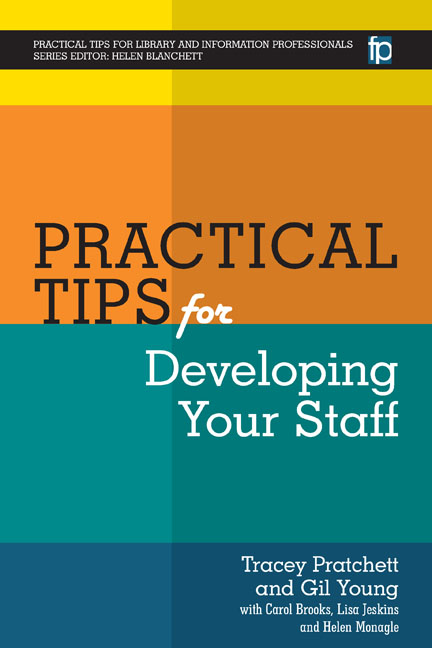Book contents
- Frontmatter
- Contents
- List of figures and tables
- Acknowledgements
- The authors
- List of abbreviations
- Series Editor's introduction
- Introduction
- Section 1 Theories
- Section 2 Infrastructure
- 11 Why develop staff?
- 12 Workforce planning
- 13 Job descriptions
- 14 Person specifications
- 15 Advertisements
- 16 Shortlisting
- 17 Interviews
- 18 Interviews – presentations and tests
- 19 Interviews – feedback
- 20 Inductions
- 21 Managing performance
- 22 Team development plans
- 23 Appraisals – preparing
- 24 Appraisals – conducting
- 25 Setting objectives
- 26 One-to-ones
- 27 Feedback – general
- 28 Team building
- 29 Team meetings
- 30 Sharing learning with the team
- 31 Writing references
- 32 Exit interviews
- 33 Effective handover
- Section 3 Activities and tools
- Index
11 - Why develop staff?
from Section 2 - Infrastructure
Published online by Cambridge University Press: 09 June 2018
- Frontmatter
- Contents
- List of figures and tables
- Acknowledgements
- The authors
- List of abbreviations
- Series Editor's introduction
- Introduction
- Section 1 Theories
- Section 2 Infrastructure
- 11 Why develop staff?
- 12 Workforce planning
- 13 Job descriptions
- 14 Person specifications
- 15 Advertisements
- 16 Shortlisting
- 17 Interviews
- 18 Interviews – presentations and tests
- 19 Interviews – feedback
- 20 Inductions
- 21 Managing performance
- 22 Team development plans
- 23 Appraisals – preparing
- 24 Appraisals – conducting
- 25 Setting objectives
- 26 One-to-ones
- 27 Feedback – general
- 28 Team building
- 29 Team meetings
- 30 Sharing learning with the team
- 31 Writing references
- 32 Exit interviews
- 33 Effective handover
- Section 3 Activities and tools
- Index
Summary
THIS BOOK IS about developing staff but the question that then arises is, why do it? Why should we, as individuals and managers, want to develop ourselves and our staff members? Why should managers and organizations support and enable us in doing so? What is in it for the individual, the service and the organization?
Development v. training
The first point to consider is the word ‘develop’ as opposed to ‘train’. Training is generally perceived as something quite basic. It is about people learning how to carry out a particular task in order to do a job. It has its place in developing staff, particularly in terms of meeting legal requirements such as health and safety considerations, but it is not the only aspect to consider. Development is much broader. It is about developing the whole person:
… enable[ing] learning and personal development, with all that this implies … focusing on enabling learning and development for people as individuals – which extends the range of development way outside traditional work skills and knowledge, and creates far more exciting, liberating, motivational opportunities – for people and for employers.
Chapman, 2014The value of continued professional development
The Chartered Institute of Personnel and Development (CIPD) has conducted extensive research on the value of continued professional development (CPD) to the individual and to the organization. Their conclusions are shown in Tables 11.1 and 11.2 (from CIPD, 2015).
Developing staff is therefore something which is good for the individual and the organization. Ultimately the purpose is to develop and move the organization forward as a whole whilst maintaining the engagement and commitment of individual staff members. In order to develop staff who contribute to the aims of the service and the organization you need to start in the right place.
Skills, knowledge, behaviour and experience
The range of skills, knowledge, behaviour and experience required by those working in LKS will vary from service to service and is often dependent upon the service model (Brophy, 2005). The rapid advances in technology mean that ‘what is learnt today will soon be superseded, so the requirement is really about developing the ability and willingness to learn new tools and techniques continually, rather than developing technical expertise’ (Corrall, 2004, 32).
- Type
- Chapter
- Information
- Practical Tips for Developing Your Staff , pp. 27 - 30Publisher: FacetPrint publication year: 2016



